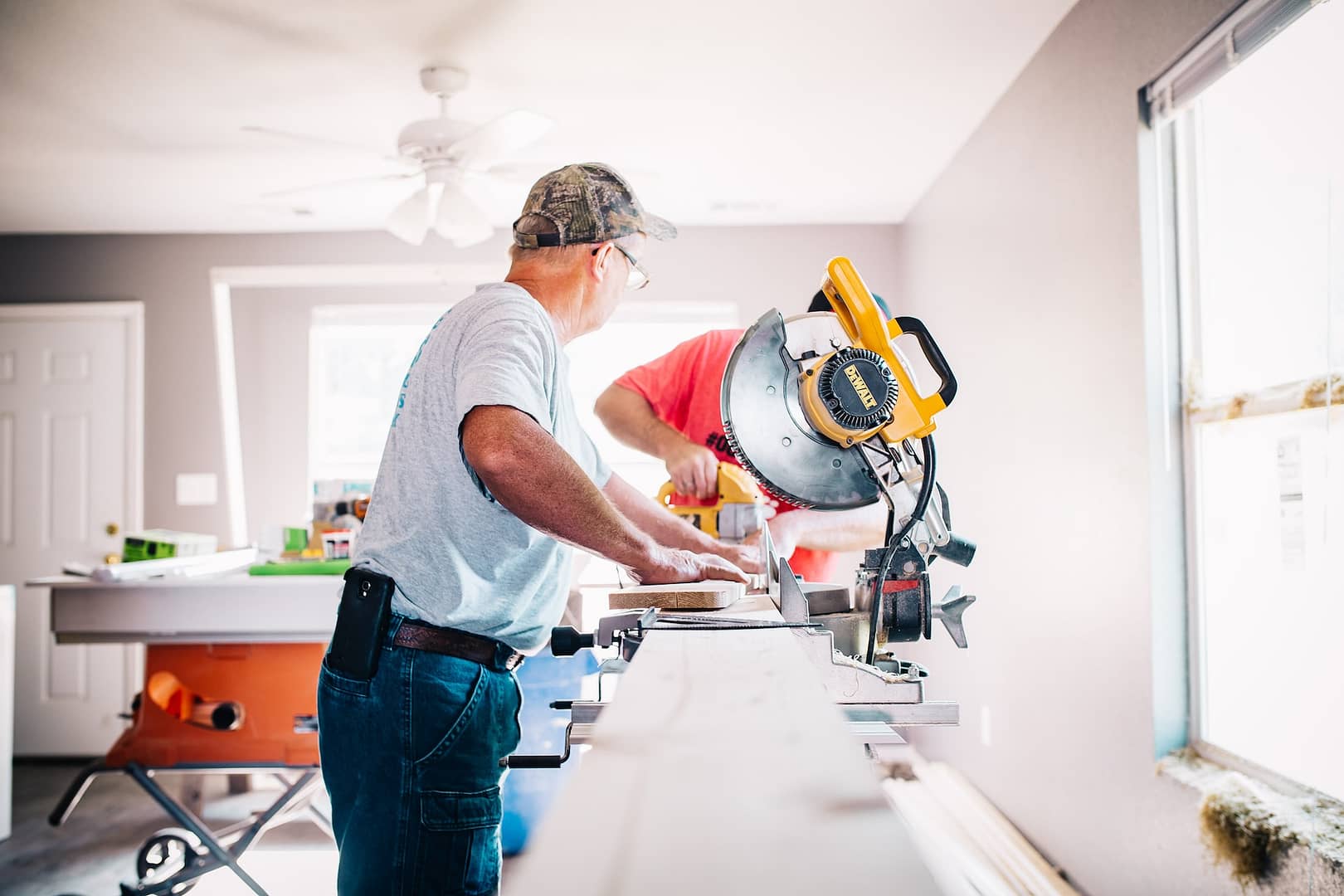When it comes to the world of social housing, a pressing question that often arises is, “Is there discrimination with repairs in social housing?” This is not merely a theoretical query; it’s a matter of profound significance that directly impacts the lives of countless individuals and families. In this article, we will delve into the concept of social housing disrepair, explore the repair obligations associated with social housing, assess whether discrimination plays a role in this critical aspect of housing provision, and even provide insights on how you can make a housing disrepair claim with National Claims.
Understanding Social Housing Disrepair
Social Housing Disrepair: Disrepair in the context of social housing refers to any condition within a property that affects its habitability or safety. These conditions can include structural issues, dampness, heating problems, electrical faults, and many other maintenance concerns. Such disrepair not only affects the physical well-being of residents but also has significant implications for their mental and emotional health.
The presence of disrepair in social housing raises important questions about the responsibilities and obligations of housing providers, as well as potential discriminatory practices in addressing these issues.
Repair Obligations for Social Housing
To understand whether discrimination exists in repairs for social housing, we must first examine the repair obligations that housing providers have. These obligations can vary from country to country and even among different housing authorities, but they generally include:
Legal Responsibilities
Housing providers are typically bound by legal obligations to maintain their properties in a habitable condition. In the UK, for example, housing authorities must comply with the Housing Act 1985, which sets out their legal duty to ensure that properties are fit for human habitation. Failure to do so can result in legal action.
Tenancy Agreements
Tenancy agreements often outline the responsibilities of both tenants and housing providers regarding repairs and maintenance. It is common for housing providers to take on the responsibility of addressing structural issues and maintaining essential services, while tenants are expected to report and address minor maintenance concerns.
Response Times
Housing authorities typically establish response times for addressing repair requests. Urgent or emergency repairs, such as heating failures in winter or severe structural issues, are expected to be addressed promptly. Non-urgent repairs may have longer response times.
Quality of Repairs
Not only must housing providers address repairs in a timely manner, but they are also expected to ensure the quality of the repairs. Temporary or substandard fixes may not fulfill their obligations and can lead to further issues down the line.
Assessing Discrimination in Repairs
Now that we’ve outlined the repair obligations for social housing, we can turn our attention to the question of whether discrimination plays a role in repairs. Discrimination in this context can manifest in several ways:
Allocation of Resources
One potential source of discrimination is the allocation of resources for repairs. Housing authorities may distribute funds and resources unequally among different properties or areas, leading to disparities in the quality and speed of repairs. This can disproportionately affect vulnerable or marginalized communities.
Response Times
Discrimination can also emerge in response times. If certain tenants or areas experience delayed responses to repair requests while others receive swift attention, it raises concerns about unequal treatment. Such disparities may be based on factors such as socioeconomic status, ethnicity, or disability.
Quality of Repairs
The quality of repairs matters just as much as their timeliness. Discrimination may occur when some properties receive subpar repairs, leading to recurring issues, while others benefit from high-quality maintenance.
Communication and Accessibility
Effective communication between housing authorities and tenants is crucial in addressing repairs. Discrimination may occur if some tenants face barriers in reporting repair issues or struggle to access information about the repair process. This can be particularly problematic for tenants with limited English proficiency or those with disabilities.
The Impact of Discrimination in Repairs
Discrimination in repairs within social housing has far-reaching consequences for residents and communities. Let’s take a closer look at some of the potential outcomes:
Health and Well-being
Residents living in properties with unresolved disrepair issues can experience adverse effects on their physical and mental health. Dampness and mold, for example, can lead to respiratory problems and exacerbate existing health conditions. Discriminatory repair practices can worsen these health disparities.
Inequality and Social Division
Unequal treatment in repairs can exacerbate existing inequalities within communities. It can foster a sense of injustice and social division, leading to tensions and dissatisfaction among residents.
Financial Burden
Tenants living in properties with persistent disrepair problems may incur additional costs, such as higher energy bills due to heating inefficiencies. This financial burden can disproportionately affect low-income households, perpetuating cycles of poverty.
Legal Consequences
Discriminatory repair practices can also result in legal repercussions for housing authorities. Tenants may seek legal remedies for breaches of their rights under housing legislation, leading to costly litigation.
Addressing Discrimination in Repairs
To combat discrimination in repairs within social housing, various measures can be taken at both the policy and community levels:
Transparency and Accountability
Housing authorities should prioritise transparency in their repair processes. They should clearly outline repair responsibilities, response times, and quality standards in a manner accessible to all tenants. Regular audits and accountability mechanisms can help ensure compliance.
Anti-Discrimination Policies
Implementing anti-discrimination policies within housing authorities can promote fair treatment of all tenants. These policies should explicitly prohibit discrimination based on factors such as race, ethnicity, disability, and socioeconomic status.
Community Engagement
Engaging with the community is crucial in identifying and addressing discrimination in repairs. Regular surveys and feedback mechanisms can help housing providers understand the needs and concerns of their tenants, especially those in marginalized communities.
Making a Housing Disrepair Claim with National Claims
Note: You can only make a claim if you are currently living in social housing.
At National Claims, we understand the challenges that tenants in social housing may face when dealing with disrepair issues. Our mission is to ensure that all tenants have access to safe and well-maintained housing, free from discrimination. If you believe that you have experienced discrimination in repairs within your social housing property, here’s how you can make a housing disrepair claim with National Claims:
Contact Us: Reach out to our experienced team of housing disrepair specialists. You can contact us through our website or by phone.
Initial Assessment: We will conduct an initial assessment of your case to determine if you have grounds for a housing disrepair claim.
Legal Assistance: If your case qualifies, we will provide you with legal assistance and representation throughout the claims process.
Documentation: Gather any documentation related to the disrepair issues, including repair requests, communication with housing authorities, and evidence of discrimination if applicable.
Claim Submission: We will prepare and submit your housing disrepair claim to the relevant authorities, seeking compensation for the harm and inconvenience you have endured.
National Claims is committed to helping tenants fight discrimination in repairs and ensuring that social housing is a safe and equitable living environment for all.

Conclusion
The question, “Is there discrimination with repairs in social housing?” is a pressing one that deserves careful consideration. While housing authorities have clear repair obligations, discrimination can still manifest in the allocation of resources, response times, and the quality of repairs. The impact of such discrimination is profound, affecting the health, well-being, and financial stability of residents.
Addressing discrimination in repairs requires a multi-faceted approach that includes transparency, anti-discrimination policies, community engagement, and legal support. By working collectively to eliminate discrimination in repairs, we can ensure that social housing fulfils its mission of providing safe and habitable homes for all, without prejudice or bias. And with National Claims, tenants have a partner dedicated to fighting discrimination and advocating for their rights in the realm of housing disrepair.
Contact us today to get a start on your claim with the assistance of one of our claims specialists.
Click below to see why we are one of the most trusted claims management companies in the UK.

We’re proud of our excellent customer reviews
We thrive on delivering exceptional service and ensuring our clients’ satisfaction. Don’t just take our word for it. Check out some of our independent reviews to see what our clients have to say.
Excellent

This firm is excellent, they sorted out my car pay out and injury claim very fast, they always communicate with you all the time.

My accident case was dealt with confidence and with great result of the outcome, especially James kept me informed all the time.

I was very impressed at the way my inquiry was treated. I was listened to attentively and everything I needed to know was explained to me.






